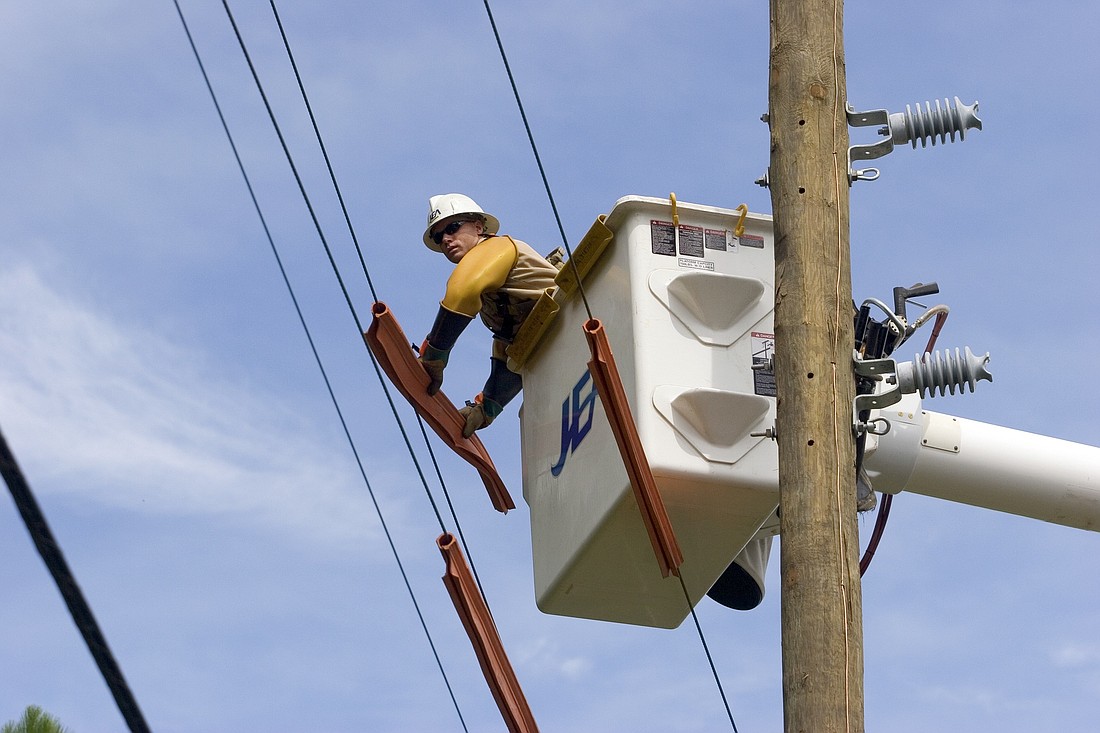
Privatizing JEA would lead to a $54 million shortfall in city revenue, according to the Duval County Property Appraiser’s Office, responding to a request for an economic projection.
The issue of selling the city’s public utility resurfaced Nov. 28 at the utility’s board meeting.
JEA Board Chair Alan Howard asked CEO Paul McElroy in a letter Wednesday to determine the utility’s assets and financial impact if JEA were put on the tax roll.
The assets related to JEA are property — real property such as land and buildings — and tangible property, which is defined as anything that can be touched other than real estate.
That would include the equipment the utility uses to generate and deliver electricity, treat and deliver drinking water and collect and dispose of wastewater.
It also includes assets such as vehicles, inventory of replacement utility poles and wire, and office furnishings and equipment used by employees in JEA’s administrative and customer service offices.
Keeping up with and placing value on all the real and tangible property in Jacksonville is what the property appraiser does each year to certify the tax roll.
Ad valorem taxes, about $18.56 for each $1,000 of assessed value, are levied to provide revenue for the city. Those property taxes account for nearly $596 million of the city’s $1.2 billion budget for 2017-18.
JEA has about $471 million in real estate holdings among 1,515 parcels on the tax roll. It also has about $5 billion in tangible property, including its electric generation and distribution, water and sewer systems.
But that $5.5 billion has no taxable value because JEA is owned by the public.
To mitigate that, JEA’s board and the city agreed in March 2016 to a five-year deal for the utility to direct at least $115 million each year to the city budget.
The $117 million contribution in 2017-18 will increase annually to $120 million in the 2020-21 fiscal year.
That’s about 10 percent of the city’s general fund budget.
Here’s how the Property Appraiser’s Office figured the shortfall.
If privately owned and paying taxes on its property, the utility’s assessment for this year would be about $101 million.
But those funds would not go solely to the city.
The funds would be divided among the city and three entities that do not currently derive revenue from JEA: the St. John’s River Water Management District, the Florida Inland Navigation District and the public schools.
In that scenario, the city’s portion this year would be about $63 million. That’s $54 million less than what it paid the city in 2017-18.
Meanwhile, the inland navigation and water management districts would realize more funding — about $1.5 million for the water management district and $177,000 for the navigation district.
Public education would receive the bulk of what the city wouldn’t get — about $36 million in tax revenue.
“The only one that would benefit no matter what would be the school system,” said City Council member Tommy Hazouri, a former school board member.
“This is something that Duval County Public Schools has long sought to do. It would be a blessing for our school system,” he added.
However, the $36 million wouldn’t go directly to Duval schools. The money would go to the state, which distributes it to schools based on a formula.
Hazouri said the call to look at selling JEA is the latest of those put forth every few years for many years. All were resolved by the city retaining ownership of the utility.
“This has been looked at since I’ve been in public office,” he said, referring to the 12 years he served in the state House of Representatives beginning in 1974 and his term as mayor from 1987-91.
Howard’s letter to McElroy also asked whether JEA’s 458,000 electric customers and 350,000 water and sewer customers would be “better served by the private marketplace.”
Howard wrote that he anticipates a “healthy debate” on the proposal, and Hazouri agrees.
Hazouri said he sees a “litany of issues” that would have to be resolved, such as how the city would provide water and sewer service if a buyer wanted to take over only the electric side of JEA as well as how to transition the utility to private ownership and operation without raising taxes.
“It’s important to begin this process, but it’s not just about the money. Before the City Council would say yes, the taxpayers and the customers would have to benefit,” Hazouri said.
Howard directed McElroy to “identify and engage” a qualified firm to evaluate JEA’s value and that the firm “should complete its work within 60-90 days of the date of engagement so as not to belabor this process.”